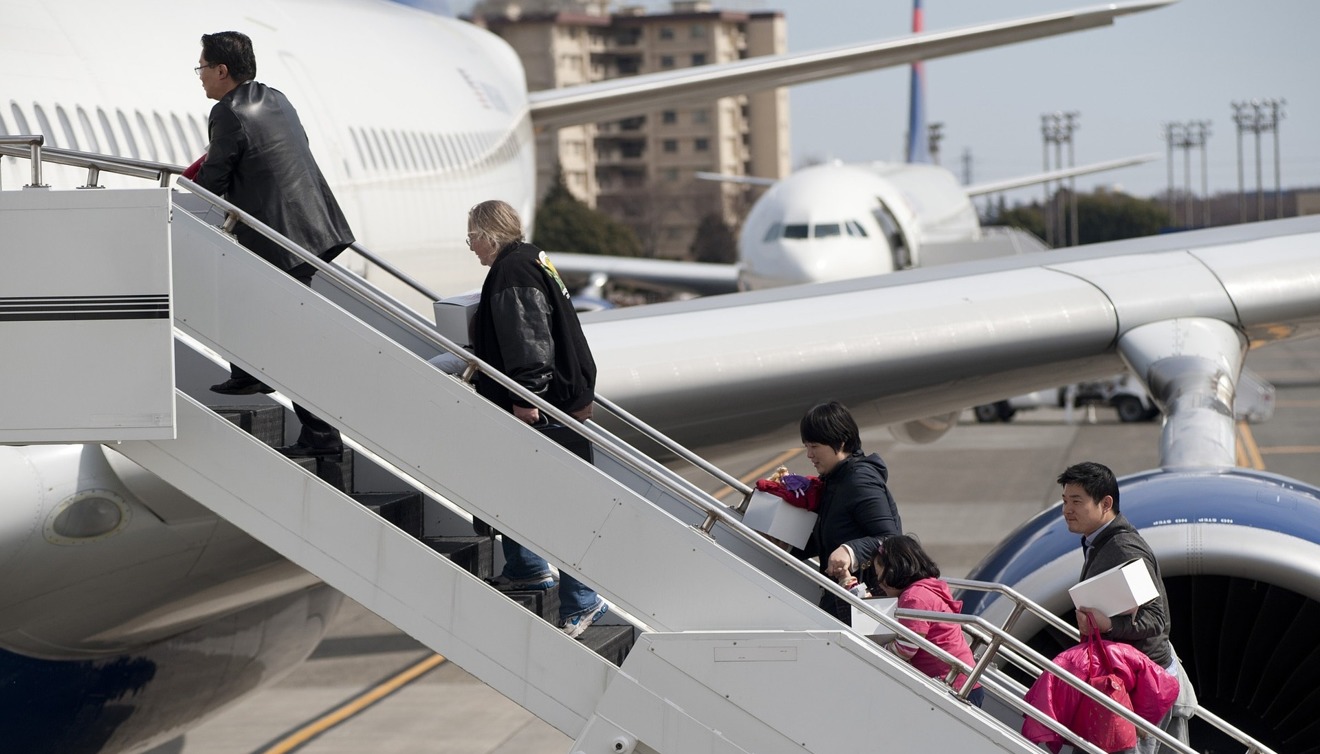A ban on travelers storing large electronic devices in carry-on luggage will not be applied to flights from Europe to the United States for now, officials have confirmed, but despite ongoing talks on both sides of the Atlantic over the matter, the U.S. Department of Homeland Security insists the ban is 'still on the table,' and could still be introduced in the future.
After the possibility of a ban on notebooks and tablets being carried onto a flight to the U.S. from Europe has been under debate for a number of weeks, the U.S. has confirmed it would not introduce the ban now, persons close to the discussions advised Politico. A European Commission official claims there is "no ban," and that both sides "have agreed to intensify technical talks and try to find a common solution."
The decision by the U.S. Department of Homeland Security supposedly settles the matter, though apparently the ban could still be imposed if future intelligence reveals a new serious risk is on the way. Such a ban is already in force, but limited to flights to the U.S. from Turkey, Morocco, Jordan, Egypt, the United Arab Emirates, Qatar, Saudi Arabia, and Kuwait.
U.S. DHS Secretary John Kelly spoke to the European Home Affairs Commissioner Dimitris Avramopoulos and Transport Commissioner Violeta Bulc on Tuesday via a conference call. Along with the decision to hold off on the ban's expansion, the two sides also discussed working together to improve aviation security.
"While a much-discussed expansion of the ban on large electronic devices in the cabin on flights to the United States was not announced today, the secretary made it clear that an expansion is still on the table," according to a DHS statement released on Tuesday. "Secretary Kelly affirmed he will implement any and all measures necessary to secure commercial aircraft flying to the United States - including prohibiting large electronic devices from the passenger cabin - if the intelligence and threat level warrant it."
It is claimed the U.S. took into account concerns by European officials about the safety of storing personal electronic devices with lithium batteries in an aircraft's cargo hold. In the event of ignition, a lithium battery fire can be contained and extinguished by crew within a cabin, an emergency action that cannot be accomplished if the battery is held in the hold.
The European Aviation Safety Agency updated safety recommendations for airlines in April, advising that personal electronic devices (PEDs) with lithium batteries should be considered as dangerous goods. "When carried by passengers, they should preferably be carried in the passenger cabin. This would enable the crew to react quickly in case an incident involving such PED occurs."
A ban on in-flight electronics would cause other issues for flights from Europe, such as increasing the amount of time it takes to check-in passengers at major airports. Complaints from passengers may also increase, due to an inability for business travelers and tourists to work or entertain themselves during long flights.
 Malcolm Owen
Malcolm Owen







-m.jpg)








 Amber Neely
Amber Neely
 William Gallagher
William Gallagher



 Oliver Haslam
Oliver Haslam

-m.jpg)






17 Comments
That ban didn't last long. #SoMuchWinning
Instead of the airlines and EU government going into this whole thing about the possibility of a fire and storing PED in the cargo. They should have just come out and said no ban at this time they had been able to address the concerns and will revaluate at a later date. This way if someone was thinking about doing something bad they would think twice since the airlines may had figure out what to look for. But no the idiots just told the bad actors they still have no idea and they were more concern about a battery in cargo verse someone carrying one on the plane. They just made everyone feel safer.
Computer catches fire on JetBlue plane just yesterday. Lithium batteries are a risk. I've been burned by one too.
http://fox17online.com/2017/05/30/laptop-fire-forces-plane-to-make-precautionary-landing-in-grand-rapids/
A ban on flights from US to Europe makes no sense. Zero. Nada. Zilch.
Think about it. All US domestic and outbound international flights pass through the exact same personal/carry-on security. If there is a problem for flying to Europe then that same problem exists for flying, say, from Boston to Atlanta.
If the "intelligence" shows that a ban on large electronics is needed for US->Europe then you have to ban them from all flights, period. That is the inescapable conclusion.
The current proposal defies logic. It is either too much, or too little. But it can't be what is proposed.
The current US Administration seem incapable of any 'joined up thinking'.
I guess their Dear 'tweeter' Leader has set an example and like good little soldiers, they are following suit.
If this goes through, I fully expect a raft of court cases to follow. Given the snails pace at which the US legal system moves, I don't think it is inconceivable that Trump will no longer be President when it gets finally resolved.
I won't be going to the USA in the forseeable future.